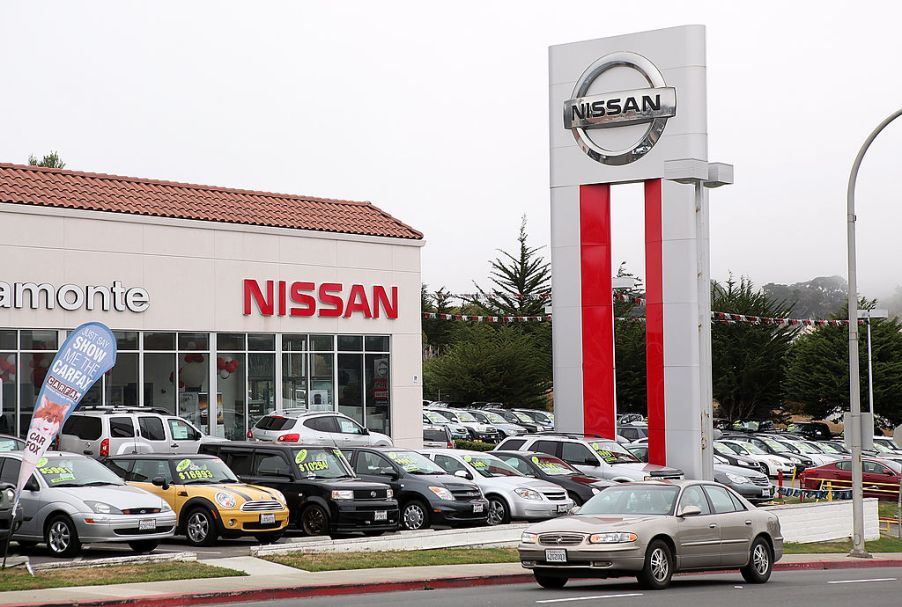
Why Do Car Dealerships Still Exist?
Car dealerships have seemingly been the bane of every car shopper’s existence for as long as we can all remember. Due to the social stigmas that have built up over the past century, having to step foot into a car dealership can conjure up feelings of anxiety, fear, and even anger, in some consumers. So if car dealerships are so despised, and cars can most likely be ordered online, then why do they still exist?
Law and order
The first car dealership was created in 1898 by William E. Metzger and since then, automakers have been using brick and mortar buildings to sell their products via franchised dealerships.
Much like your local McDonald’s, franchise dealerships exist all around the country to sell the same products, albeit at different prices. Why? Because the dealership model equated to more profit for the manufacturers and better product distribution.
Additionally, there are currently federal laws that require that new cars can only be sold by licensed, bonded, and independent dealerships and not directly by the manufacturer.

Leave it to the professionals
Manufacturing a car and selling one are two different ball games. As such, manufacturers outsource selling their cars to dealerships, since they are more qualified to do so.
While some retailers of other products, like electronics, for example, can actually handle manufacturing and selling, it’s much trickier when it comes to cars.
Dealers benefit the customer
Believe it or not, being able to comparison shop between different Ford dealers is actually a benefit. Sure, it can be annoying to do the actual legwork, but ultimately, it keeps the cost of the car that you’re interested in lower and allows you to get the great deal that you’ve been wanting.
If you can imagine, buying a car from the manufacturer means that you will be buying it at full retail price. If you don’t believe us, go buy a Tesla and see if they will haggle with you.

Dealers benefit the manufacturer
While dealerships are seen by most as “middlemen” between the consumer and the manufacturer, that is not actually the case. According to NADA, there are costs of retailing cars and the cost will be incurred by whoever is doing the retailing, whether it’s the manufacturer or a dealer.
By outsourcing the sales part of the process to a dealer, and the local dealers compete with one another, there are incentives to minimize those costs.
Service is key
Aside from all of the back-end laws and costs, dealerships still exist to provide the customers a good customer service experience and build brand loyalty. Dealerships allow for an easier process when it comes to doing warranty and recall work, as well as routine maintenance and other repairs.
By having the dealerships take care of the sales and service side of the process, the manufacturer can then focus its time and resources on developing and manufacturing their products.

Post-pandemic sales
Now that we know why dealerships still exist, it’s possible that the traditional sales process will be modified by most of them going forward.
While consumers might not be able to buy a car solely online, dealerships are currently making strides to make the overall sales process “contact-less” and “hassle-free,” which will be a huge benefit to car buyers. Not only from a health standpoint but also from a stress standpoint.
You might not be able to buy a car like you can buy an electric toothbrush on Amazon, however, you can rest easier knowing that you’ll be able to buy that Toyota Yaris you always dreamt of in a much easier and streamlined process going forward.



